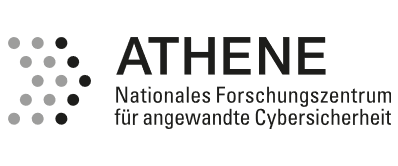In an increasingly data-driven world, individuals must protect their privacy while evaluating the credibility of the information they consume. Yet, digital environments are becoming more complex and less transparent, making it harder to maintain control over one’s data and decisions.
Tom Biselli’s dissertation addresses this dual challenge by framing it through the concept of Individual Information Sovereignty (IIS) – understood as autonomy, control, and competence in digital contexts. From a Human-Computer Interaction (HCI) perspective, his research combines conceptual, empirical, and design-based approaches.
Using surveys, interviews, experiments, and think-aloud studies, the thesis demonstrates the need for clearly operationalized constructs like privacy behavior and highlights users’ diverse, evolving needs. Design implications include personalised cookie banners to reduce unwanted data sharing and targeted cues for detecting misinformation in texts, videos, and visualizations. The work contributes to strengthening users’ informed agency in managing digital information flows – a timely and relevant topic for digital societies.
On “Friday the 13th”, June, 2025, Tom Biselli successfully defended his doctoral thesis at the Department of Computer Science, TU Darmstadt.
The entire PEASEC team warmly congratulates him on this achievement!

Individual Information Sovereignty: User Perspectives and Digital Interventions for Navigating Privacy and Misinformation
Abstract: In an ever more complex and opaque digital information landscape, individuals increasingly share sensitive data and rely on various digital sources for information. In doing so, they face increasing challenges in engaging with digital information flows. This dissertation explores two critical directions of digital information flows: (1) the disclosure of sensitive information related to privacy and (2) the consumption of information, with a particular focus on misinformation.
To effectively address these challenges, individuals require support in regaining their information sovereignty, which this dissertation conceptualises as a form of autonomy, control, and competence in navigating digital information flows related to privacy and misinformation. Overall, this dissertation provides a user-centred perspective rooted in Human-Computer Interaction (HCI) to explore conceptual and methodological insights, user perspectives, and design implications for digital interventions with the overarching aim of supporting individual information sovereignty (IIS). To do this, this dissertation employs a range of qualitative and quantitative research methods, including representative surveys, interviews, focus groups, think-aloud studies, and online experiments. Findings on conceptual and methodological insights demonstrate how precise operationalisation and measurement of concepts such as privacy and corresponding behaviour are essential prerequisites for accurately determining user needs. Findings on user perspectives highlight diverse, context-dependent, and evolving perspectives and patterns in digital technology use as well as support needs.
Users express a fundamental tension between the advantages of digital information availability and the risk of information overload, leading to challenges in maintaining control over digital information flows. In the context of emergencies, for example, the use of social media is especially hindered by perceived privacy implications and the risk of false rumours. In general, users desire greater transparency and comprehensibility when navigating privacy and misinformation, suggesting that interventions should prioritise empowering user autonomy through tailored, clear and well-structured information. Finally, findings on design implications for digital interventions to support navigating privacy and misinformation highlight the potential of transparent and personalised approaches. For instance, personalised cookie banners tailored to users’ privacy knowledge reduce the acceptance of browser cookies. Additionally, personalised nudges and transparent, indicator-based interventions support the identification of misleading information in text, videos, and charts. Overall, this dissertation demonstrates the heterogeneity of user perspectives and the potential of transparent and personalised interventions to support IIS. This approach aims to empower users to navigate digital information flows in a more informed and self-determined way.
Selected Publications within the PhD thesis:
- Tom Biselli, Christian Reuter (2021)
On the Relationship between IT Privacy and Security Behavior: A Survey among German Private Users
Proceedings of the International Conference on Wirtschaftsinformatik (WI) Potsdam, Germany. doi:https://doi.org/10.1007/978-3-030-86797-3_26
[Download PDF] - Tom Biselli, Enno Steinbrink, Franziska Herbert, Gina Maria Schmidbauer-Wolf, Christian Reuter (2022)
On the Challenges of Developing a Concise Questionnaire to Identify Privacy Personas
Proceedings on Privacy Enhancing Technologies (PoPETs) (4):645–669. doi:10.56553/popets-2022-0126
[Download PDF] - Thea Riebe, Tom Biselli, Marc-André Kaufhold, Christian Reuter (2023)
Privacy Concerns and Acceptance Factors of OSINT for Cybersecurity: A Representative Survey
Proceedings on Privacy Enhancing Technologies (PoPETs) (1):477–493. doi:https://doi.org/10.56553/popets-2023-0028
[Download PDF] - Christian Reuter, Marc-André Kaufhold, Tom Biselli, Helene Pleil (2023)
Increasing Adoption Despite Perceived Limitations of Social Media in Emergencies: Representative Insights on German Citizens’ Perception and Trends from 2017 to 2021
International Journal of Disaster Risk Reduction (IJDRR) ;96. doi:https://doi.org/10.1016/j.ijdrr.2023.103880
[Download PDF] - Tom Biselli, Katrin Hartwig, Christian Reuter (2025)
Mitigating Misinformation Sharing on Social Media through Personalised Nudging
Proceedings of the ACM: Human Computer Interaction (PACM): Computer-Supported Cooperative Work and Social Computing .
- Tom Biselli, Laura Utz, Christian Reuter (2024)
Supporting Informed Choices about Browser Cookies: The Impact of Personalised Cookie Banners
Proceedings on Privacy Enhancing Technologies (PoPETs) (1):171–191. doi:10.56553/popets-2024-0011
[Download PDF] - Katrin Hartwig, Tom Biselli, Franziska Schneider, Christian Reuter (2024)
From Adolescents’ Eyes: Assessing an Indicator-Based Intervention to Combat Misinformation on TikTok
Proceedings of the Conference on Human Factors in Computing Systems (CHI) New York, NY, USA. doi:10.1145/3613904.3642264
[Download PDF] - Tom Biselli, Katrin Hartwig, Niklas Kneissl, Louis Pouliot, Christian Reuter (2024)
ChartChecker: A User-Centred Approach to Support the Understanding of Misleading Charts.
Proceedings of the ACM Conference on Designing Interactive Systems (DIS)
Projects:


